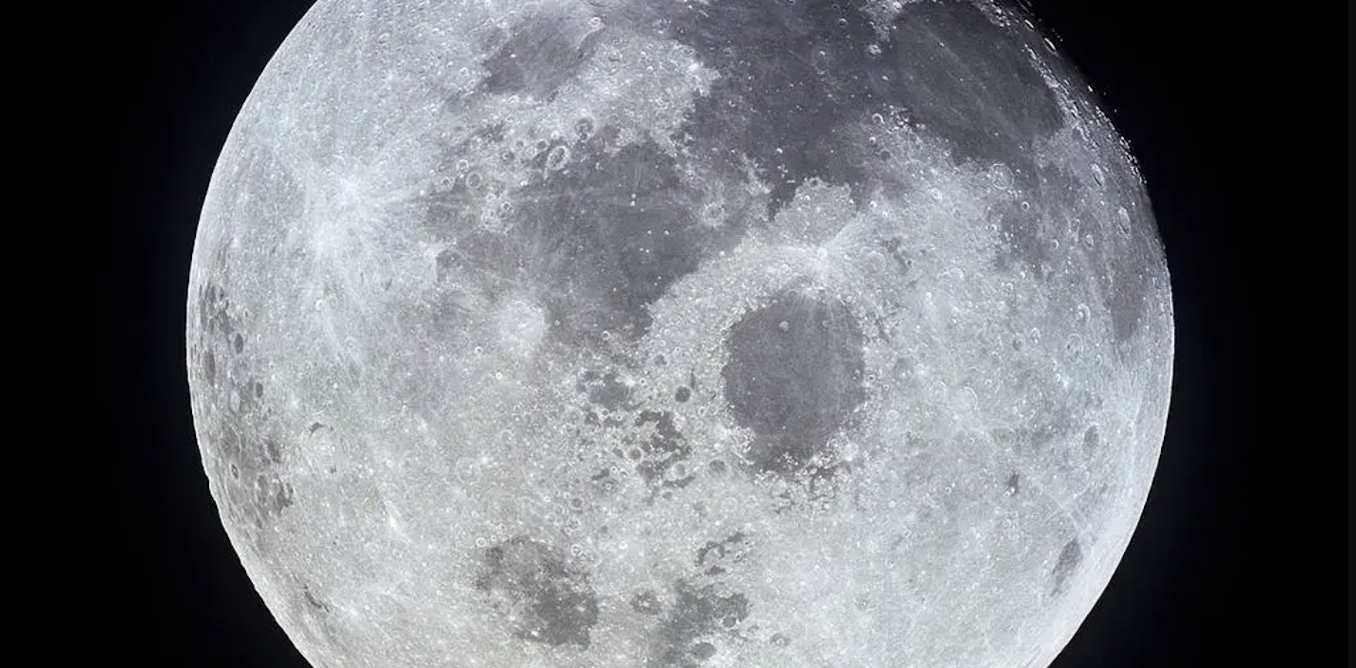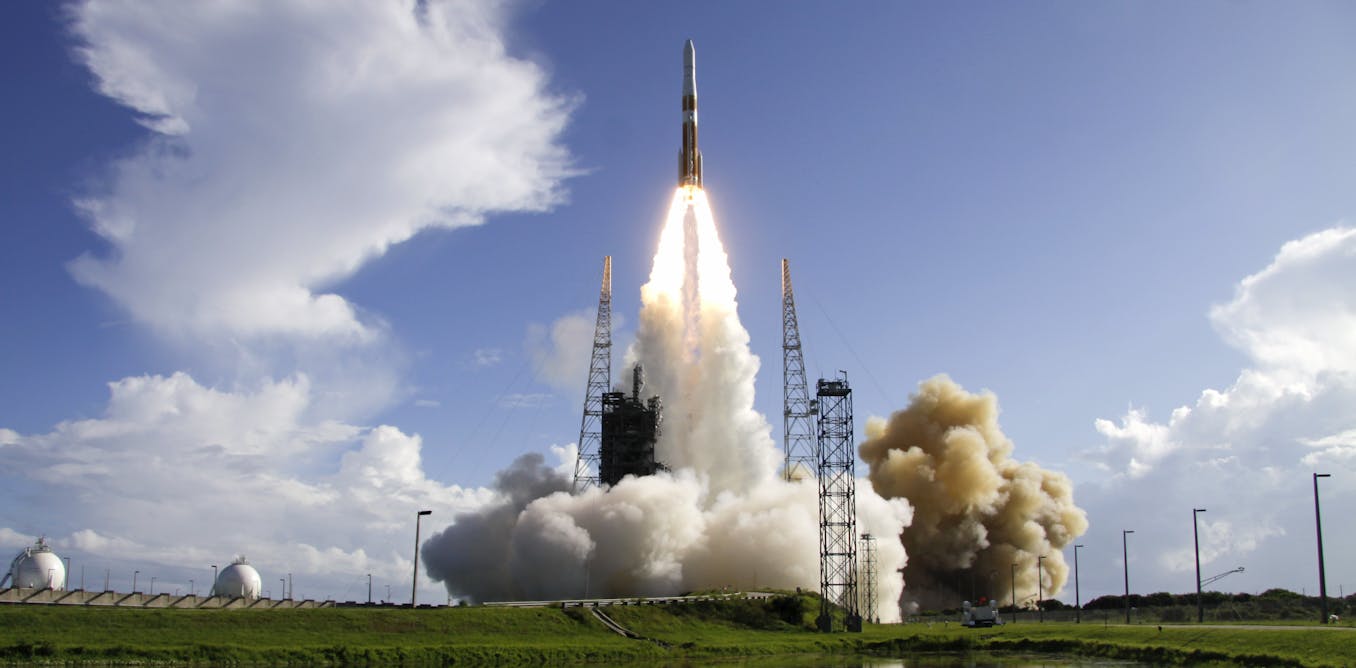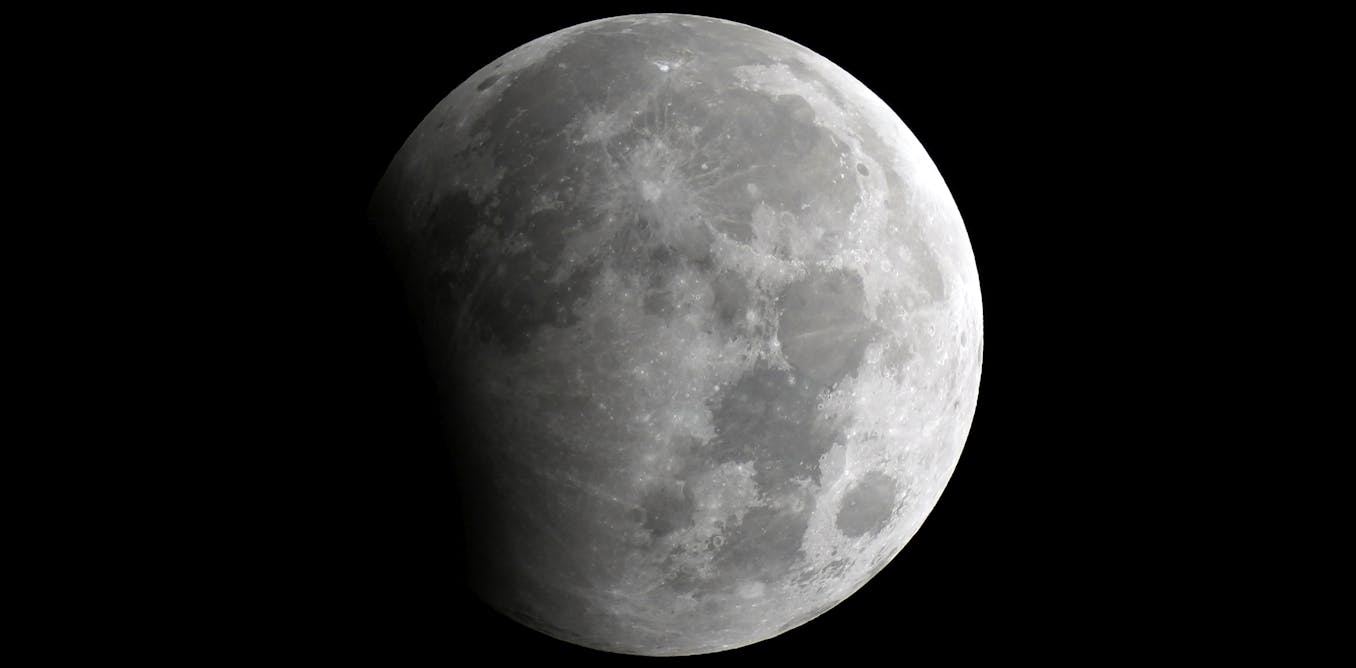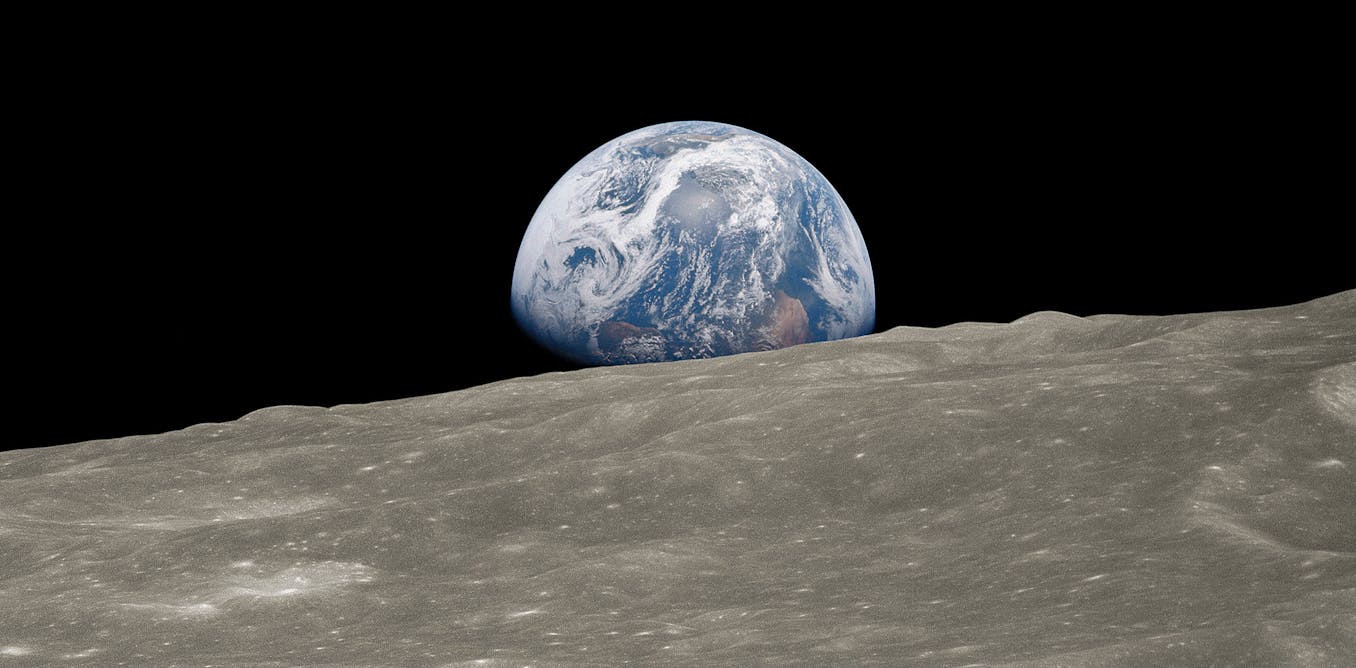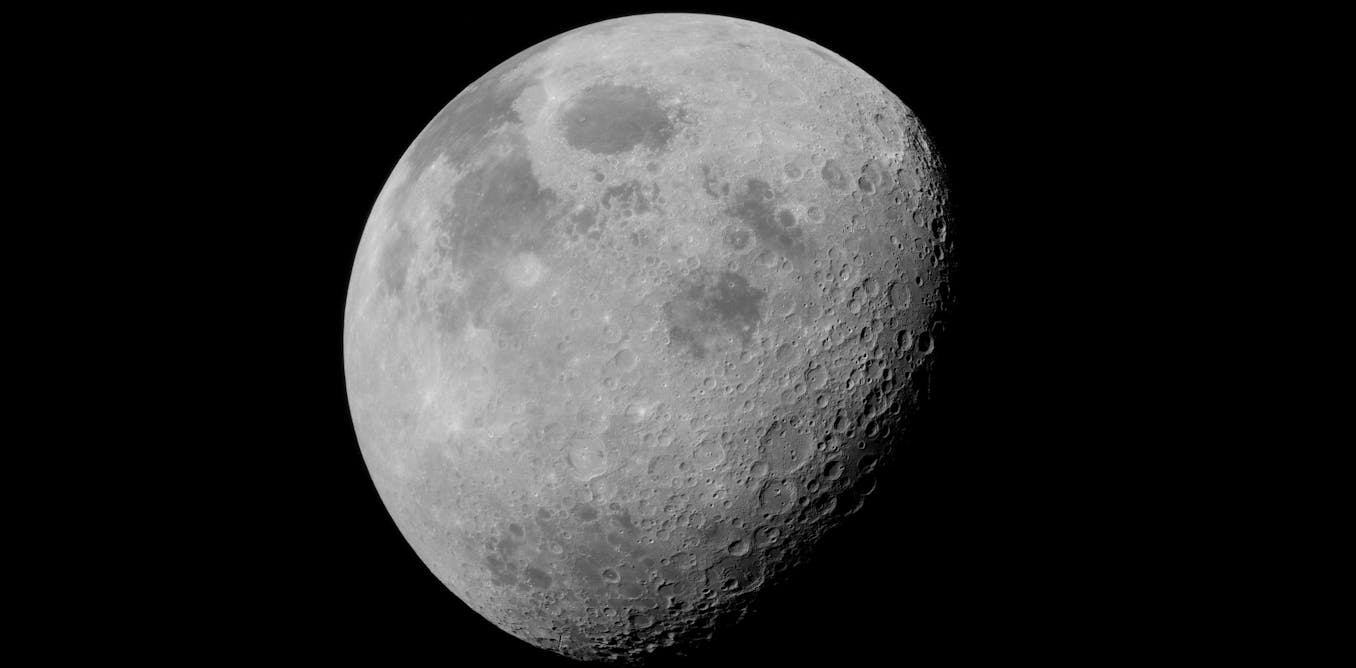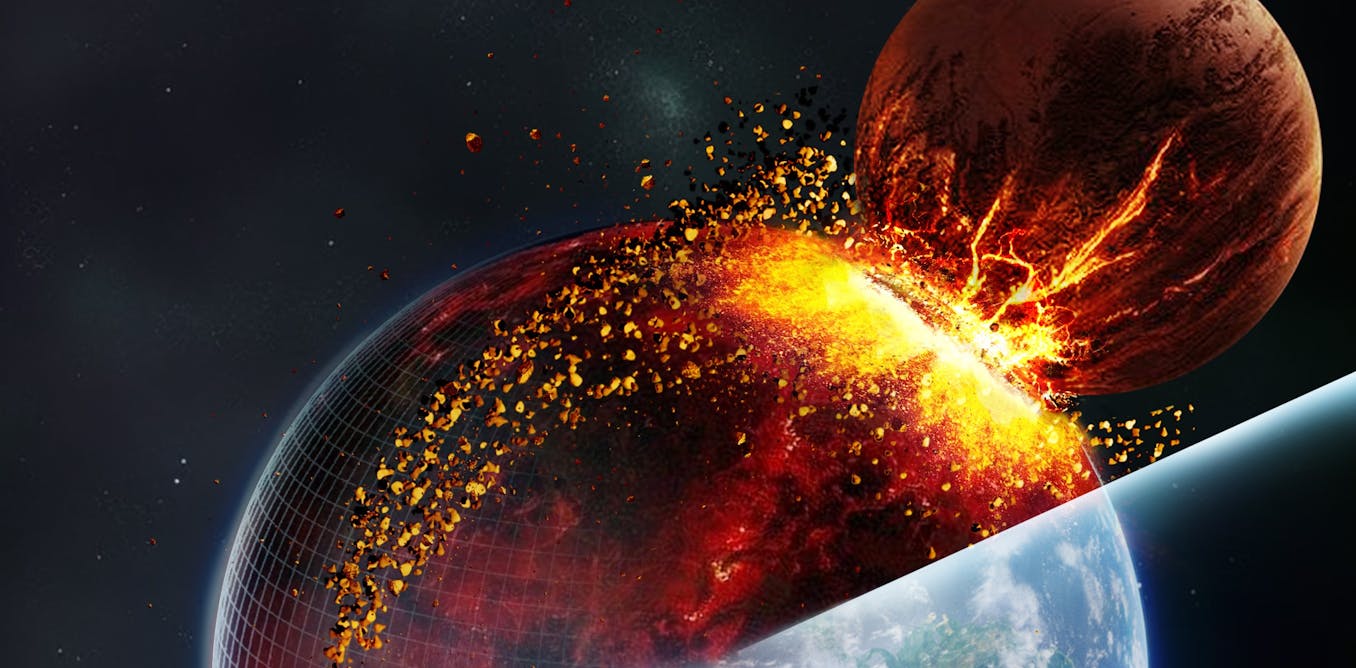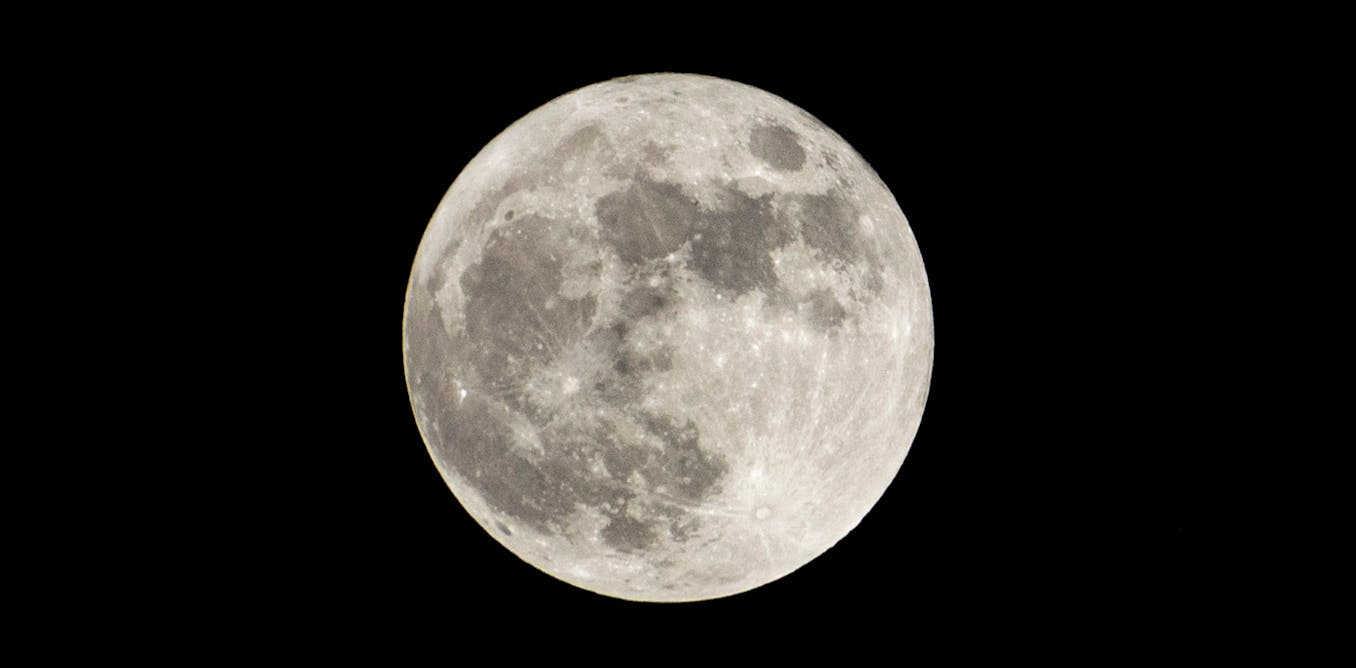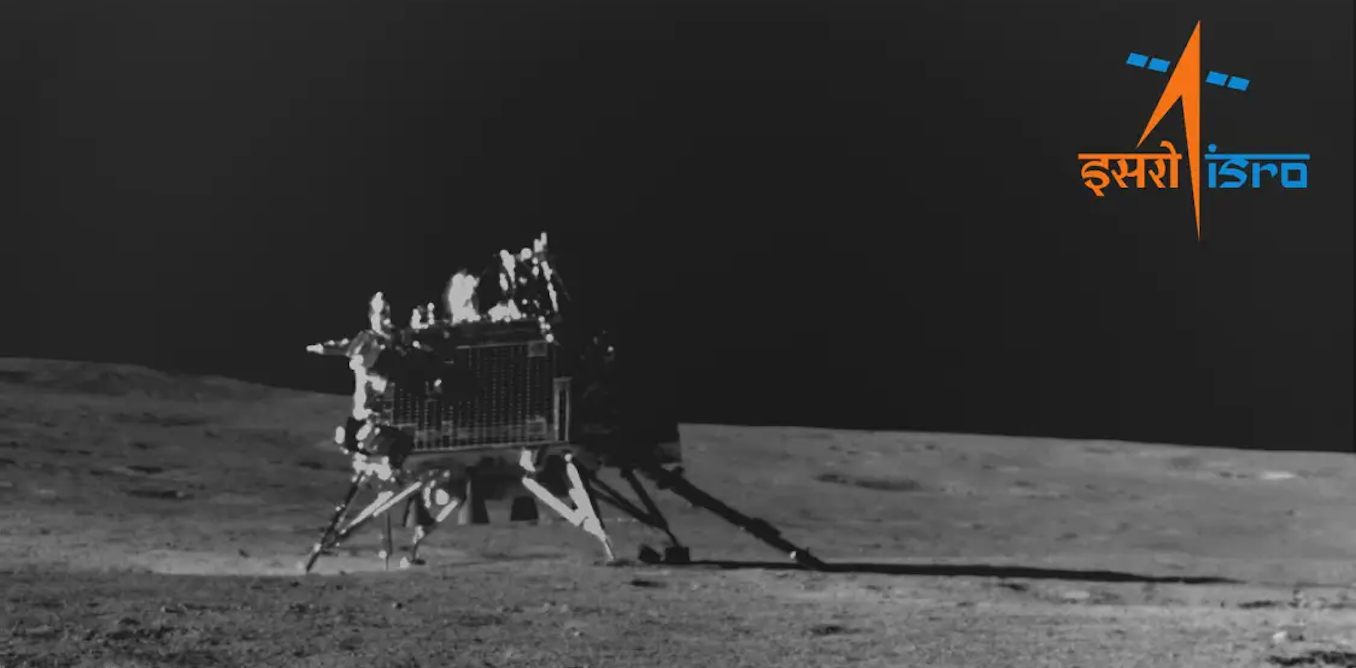From the Moon's south pole to an ice-covered ocean world, several exciting space missions are slated for launch in 2024
Expect lots of space missions to launch this coming year, with exciting new science to follow.
Dec. 26, 2023 • ~9 min
Scientists and space agencies are shooting for the Moon -- 5 essential reads on modern lunar missions
Chandrayaan-3’s successful landing on the Moon made 2023 a big year for lunar exploration, and future years will come with even more discoveries.
Dec. 12, 2023 • ~8 min
Scientists suspect there's ice hiding on the Moon, and a host of missions from the US and beyond are searching for it
Some dark craters on the Moon are never exposed to light − ice could be hiding in these permanently shadowed regions, and India’s Chandrayaan-3 mission marked a big step toward finding it.
Nov. 15, 2023 • ~8 min
Earth has many objects in orbit but definitely only one Moon – despite what some people think
Despite the distances involved, people as far apart as the UK and Australia can see the Moon at the same time.
Nov. 9, 2023 • ~6 min
Space rocks and asteroid dust are pricey, but these aren't the most expensive materials used in science
Some space rocks you can get for free – if you know how to identify them. Rarer materials cost more, and the asteroid sample NASA just brought back has a high price tag.
Oct. 24, 2023 • ~9 min
Astronomers have learned lots about the universe − but how do they study astronomical objects too distant to visit?
Controlled experiments are impossible in astronomy, as are direct measurements of physical properties of objects outside our solar system. So how do astronomers know so much about them?
Oct. 12, 2023 • ~7 min
Chandrayaan-3's measurements of sulfur open the doors for lunar science and exploration
India’s Chandrayaan-3 rover has found sulfur on the Moon’s surface at higher concentrations than previously seen. Sulfur, a useful resource, could pave the way for future Moon bases.
Sept. 22, 2023 • ~8 min
/
12

